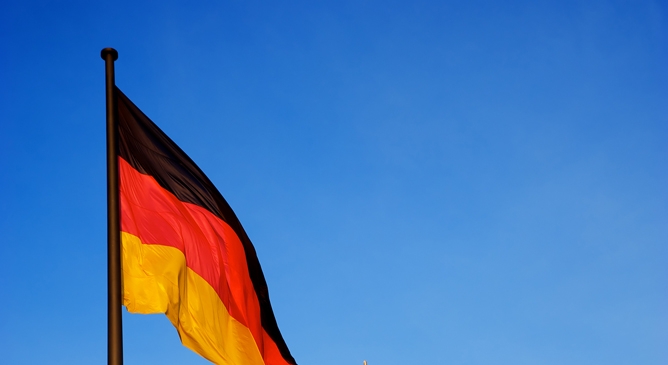
Is Germany flipping the bird at Europe?
It would have caused a chuckle among British tabloid readers. In Germany (and Greece) it caused a storm. On February 22 2010, the German news magazine Focus published a cover that depicted the Aphrodite of Milos with an outstretched arm making a very rude gesture at its readers. The caption - "Cheats in our euro-family" - was clearly directed at Greece, which was just then negotiating a €110bn bailout package with its eurozone partners. Now a group of Greeks is suing Focus for defamation.
The Focus cover illustrated how much Germany's traditionally staid and politically correct media landscape has changed. More importantly, it represented a shift of German attitudes away from unquestioning support for European integration towards a more hard-nosed attitude towards the EU.
Focus was not alone. The German press coverage of the eurozone crisis has ranged from the doubtful to the visceral. Bild Zeitung, the country's biggest and most influential tabloid, revelled in stories about Greeks retiring at 50 and dodging their taxes. "We give you cash, you give us Corfu", ran one headline that particularly upset the Greeks. Even sober and serious broadsheets such as Frankfurter Allgemeine Zeitung ran articles and interviews that left Germans confused about the sacrifices they are making for their broke neighbours. Instead of explaining that Greece, Ireland and Portugal are receiving bilaterally guaranteed loans (at interest rates that benefit the lenders), the media have portrayed the bailouts as a straight cash transfer: education, pensions and social benefits in Germany would suffer as a result.
Is the German attitude towards Europe turning nasty? The current sense of frustration in Germany is worrying, and in many ways unjustified (Germany itself has contributed to the crisis). But some offensive and distorting media coverage does not mean that Germany is turning unequivocally Eurosceptic.
Germany has never had a proper debate about its membership in the EU before. When I grew up there, all political parties were staunch supporters of European integration. Governments would be happy to pay extra deutschmarks to achieve the EU-wide compromises to make such integration possible. Newspaper editors and TV commentators hardly ever talked about the costs and benefits of Germany's EU membership. German people were not asked whether they wanted to give up their currency or admit former communist countries into the EU. It was assumed that what was good for Europe was good for Germany.
So Germany's European debate is overdue - it is just unfortunate that this debate starts at a time when the eurozone crisis has whipped up a nasty sense of indignation. Like a currency that has been fixed for too long, Germany's European debate now overshoots. My hunch is that once the debate calms down and matures, the Germans will decide that European integration and solidarity is still very much in their interest.
This does not mean, however, that Berlin will ever go back to the unquestioning support of integration and chequebook diplomacy of old. Several underlying trends mean that henceforth Europe has to cope with a new German reality.
First, Germany is now run by a group of leaders with no living memory of the horrors of the second world war. Defeated postwar Germany could have a foreign policy only as part of a European club or a western alliance. Today, many Germans think they have paid their historical dues. For the generation of Helmut Kohl, Europe was a matter of war and peace; for Chancellor Merkel and most of her contemporaries, it is a question of costs and benefits.
Second, Germany used to be a frontline state in the cold war. Membership in the EU and Nato was a matter of survival. Following the eastward enlargement of both organisations, Germany is now surrounded by friends and it can define its national interest differently. Also, the fact that the EU now consists of 27 very diverse nations means there is no "EU interest" with which Germany could easily align. Germany's European debate is not all negative. There are just as many voices calling on Merkel to take a more enlightened approach to European leadership and invest in the euro's future. The backlash against the euro has finally forced Germany's politicians, columnists and business leaders to explain the many benefits that Germany has reaped from European integration. For Germany to become a "normal" country in Europe will mean acting in a way that befits its historic legacy, economic power and new responsibilities. It will be a few years before Germans figure out how to do this well. In the meantime, expect some upsetting headlines and diplomatic faux-pas.
